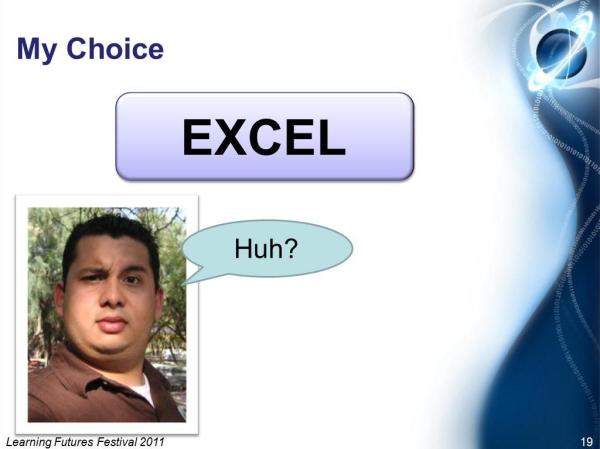So… I have finished my data collection and analysis. Or so I want to believe. I have interesting information that enables me to answer my research questions. I have identified key conclusions. I also have lots of extra data that I can use for other studies. It seems that I am all set to write my thesis, have my Viva, and get my PhD… But why do I feel that something is still missing?
I cannot shake away that feeling… A PhD is supposed to provide a meaningful contribution to the academic community. Are my findings meaningful enough? How can I know? Meaningful for whom? Who is the academic community? Me? My participants? You?
I would not be worried if I had a wow factor. A wow factor is very useful in academic writings. It is something that makes the audience think: Wow. I hadn’t thought of that before. If you have a wow factor, it is highly likely that your contribution is meaningful, or at least, that it will be regarded as such.
Unfortunately, I do not have a wow factor. I need one. Does it have to do with the actual data or with the way of presenting the data? That is a tricky question. I am not sure. I want to say: Both. You need to have something new and present it in an engaging way. We could even represent the wow factor using the following equation:
exciting data + exciting presentation = wow factor
But honestly, I think that you could have quite a boring finding (my intervention was unsuccessful), present it in an original way (today I will show you how to ruin an intervention) and achieve a wow factor (wow; what an interesting, insightful presentation). So our equation is simply:
|data| + exciting presentation = wow factor
Is achieving the wow factor manipulation or effective communication? That is another tricky question. And again, I am not sure what the answer is. I want to say: It is effective communication. And since that sounds nicer, that is my answer. But let me know if you disagree. I would love to know your reasons.
Meanwhile I will look for my wow factor. I think my findings are interesting enough (but I am passionate about my work, so what else could I say?). I just need an effective way of communicating them and thus, making a meaningful contribution for the academic community.




